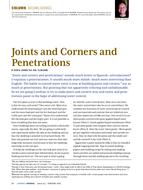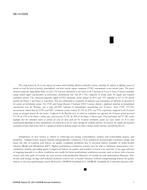A computer analysis was conducted to investigate the effects of three different interior wall treatments and two exteriorwall treatments on moisture accumulation in concrete block constructions typical of hotel and motel construction when exposed to a hot and humid climate. The three interior wall treatments included (1) heavy vinyl wallpaper, (2) permeable wallpaper, and (3) latex paint. The exterior wall treatments were (1) elastomeric stucco representing a “best case” scenario for moisture transfer prevention and (2) no treatment (bare wall) indicating “worst case” potential for moisture transfer. The computer analysis was conducted for a hot and humid climate (Brownsville, Texas) during the three summer months. Results from the computer analysis were compared to experimental data collected for a research project sponsored by the American Society of Heating, Refrigerating and Air-Conditioning Engineers (ASHRAE) entitled “Controlling Moisture in Walls Exposed to Hot and Humid Climates”, which dealt with experimental evaluation of moisture transfer into concrete block constructions. Two separate computer analyses were performed for each of the six wall constructions investigated: (1) simulation using WYEC (Weather Year for Energy Calculations) data for Brownsville, Texas, and (2) simulation using the recorded experimental dry-bulb temperature and relative humidity data from the research project. Computer simulations using the WYEC data and the experimental temperature and relative humidity data showed good agreement with the actual recorded relative humidity levels at the interface between gypsum board and interior wall surface treatment.
Also paper MN-00-1-3, in MN-00-1, Symposium on Experience with Weather Data for Simulation and Design, Part 1: Simulation, Ventilation, and Daylighting
Units: Dual
Citation: ASHRAE Transactions, vol. 106, pt. 2
Product Details
- Published:
- 2000
- Number of Pages:
- 10
- File Size:
- 1 file , 630 KB
- Product Code(s):
- D-7239


